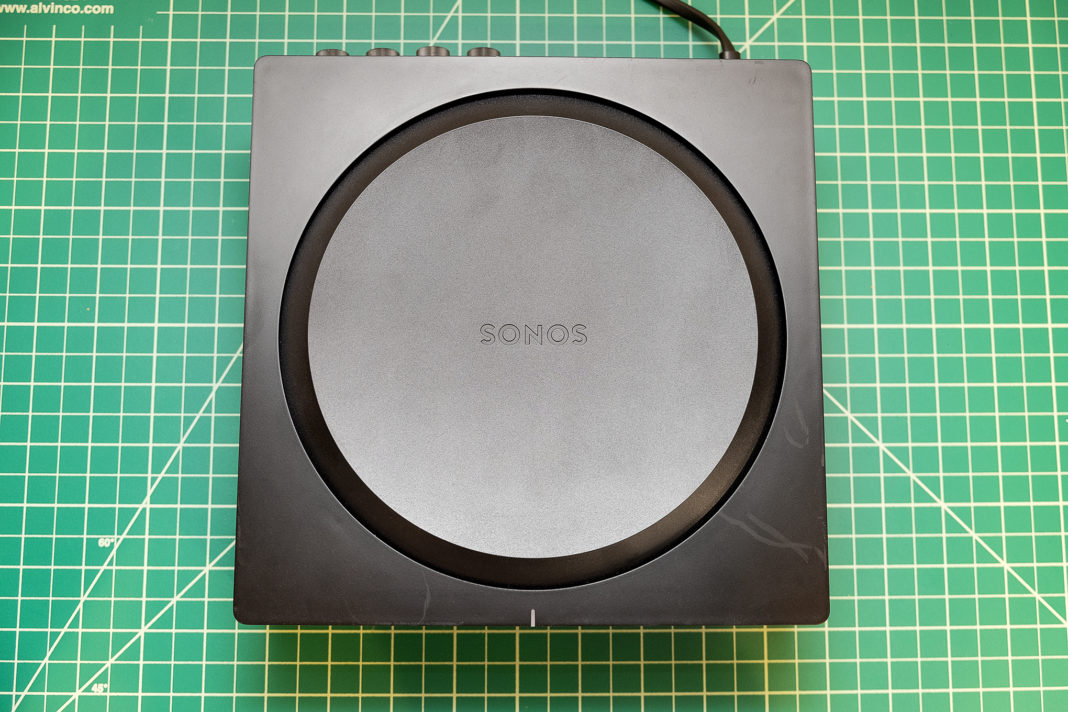Yesterday, Sonos filed two lawsuits against Google over its wireless speaker tech. The company alleges that Google infringed on patents for syncing a group of speakers over a local network, an idea that Sonos pioneered before Google followed up with products like the Home and Home Mini.
It’s not the first time Sonos has filed a lawsuit over patent infringement. But patents don’t look like the heart of the issue here. The real fight with Google is about monopolies and modern computing — and a world where a few huge companies run locked-down ecosystems and can simply consume their competition.
Big companies copying smaller ones is nothing new. Plenty of startups like Sonos have innovative ideas, only to see larger competitors launch similar products at cheaper prices. Sometimes these tactics are illegal, either because the design directly infringes on a patent or copyright or because the big company’s tactics rise to the level of antitrust violations. Sometimes, the companies are simply out of luck — fashion designers get ripped off constantly, for example, and it’s often completely legal. (Google has obviously denied the accusations, saying it’s prepared to defend its products in court.)
Google Assistant restrictions were seemingly the last straw for Sonos
But based on Sonos executives’ interviews with The New York Times, the final straw wasn’t the alleged infringement. It was Google using its Assistant voice command platform as a cudgel. Voice commands have become a standard feature on speakers, and Google Assistant is one of the most ubiquitous. While the company offers a free software development kit, it’s restricted to non-commercial use. That gives Google a lot of power over hardware makers, and Google may have used it to retaliate against Sonos. One anecdote suggests Google set stricter terms for using Assistant, for example, after receiving complaints about the patents.
Google has financial stakes in basically every level of computing systems like smart speakers. It makes hardware to put in people’s homes, just like Sonos. But it also makes a voice assistant that’s functionally an operating system for those speakers — something Sonos didn’t have until a recent acquisition. It runs services that provide content like music. And it’s built software that can mine voice data for valuable insights about users. When Google finds a gap in its ecosystem, it often just acquires a company that fills it, like Android, Nest, and Fitbit.
That means Sonos isn’t just going up against a bigger company with more resources; it’s playing on a field operated by its biggest competitors that can use that influence to quietly scuttle useful new features. According to the Times, Sonos wanted to roll out simultaneous support for Google Assistant and Amazon Alexa — an extra feature that would justify a higher price and set Sonos apart. But Google and Amazon reportedly forced Sonos to drop the plan. (Amazon denies that it did so.) Sonos executives claim that Google maintains a standing ban on Assistant working alongside any competing product from Amazon, Apple, Microsoft, or Baidu.
Google is one of the most powerful companies in this space, but computing walled gardens are much bigger than any one company. Microsoft famously tried to control Windows’ software ecosystem in the ‘90s, leading to a landmark antitrust case. Google competitors like Apple and Amazon have similar kinds of vertical integration. This has led to bitter feuds in which these companies block each others’ services from their hardware, and it’s led to antitrust lawsuits from smaller players like Spotify — which has argued that Apple’s iOS App Store effectively “taxes” the independent music app to the advantage of its own Apple Music service. Meanwhile, users end up with fewer functional choices since they have to declare allegiance to an ecosystem before they buy a gadget.
Buying a gadget means declaring allegiance to an ecosystem
It’s an industry-wide problem, and just getting Google to license patents won’t solve it. Big companies can still legally copy the concept of a product since you can’t patent an idea — and consumers would lose out on lots of improved, refined designs if that weren’t true. The problem is creating an environment where companies can compete on the merits of their products.
So what’s the solution? One extreme option is to break up this big, vertical chain so that Google’s voice assistant division, for example, wouldn’t have the same profit motive as its speaker hardware division. (This could also make it easier for other voice assistants to thrive so Google Assistant wouldn’t be so important in the first place.) 2020 presidential candidate Sen. Elizabeth Warren (D-MA) has announced plans to split up tech giants, although her Democratic rivals largely haven’t gone that far, and some Republican lawmakers have also speculated about breaking up Facebook and Google.
The less drastic solution is making systems more interoperable, so companies like Sonos could use products like Google Assistant without approval — whether because of a new law or implemented through reverse-engineering and other unauthorized methods. Services like Google Assistant currently collect a lot of user data, and the more they’re opened up to other companies, the greater the potential risk of a breach. But they can also be designed differently or regulated in ways that promote security.
For now, Sonos isn’t making an unfair competition case against Google. But CEO Patrick Spence is set to testify before a congressional antitrust subcommittee on January 17th — and whatever the outcome of its infringement lawsuits, the company is facing much bigger problems than violated patents.













![Hotstar Premium Cookies 2019 [*100% Working & Daily Updated*] Hotstar Premium Cookies 2019 [*100% Working & Daily Updated*]](https://tahav.com/wp-content/uploads/2019/11/Hotstar-Premium-Cookies-Free-100x70.jpg)



